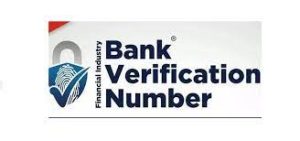Recently, banks in Nigeria have reportedly experienced a surge in new Bank Verification Number (BVN) registrations following the announcement by the Central Bank of Nigeria (CBN) that it will close bank accounts not linked to BVN.
This move by the apex bank is aimed at cleaning up the sector and reducing financial fraud, according to the CBN’s Director of the Risk Management Department and Chief Risk Officer, Blaise Ijabor.
The announcement by the CBN is not the first of its kind. The Nigerian Inter-Bank Settlement System (NIBSS) had earlier reported that there had been slowed registrations since the beginning of 2023 despite the CBN’s announcement. As of December 2022, the BVN record stood at 56.5 million, with only 500,000 new enrolments in the last three months of 2023, including the nine days in April. This figure is lower than the average of 400,000 monthly registrations in 2022.
The BVN is a unique identifier that links a person to bank accounts across financial institutions in Nigeria, including Fintech. It is issued or required at the point of bank account opening. BVN gives account owners a unique, verifiable identity across the Nigerian banking system while ensuring customers’ accounts are protected from unauthorized access, according to Nairametrics.
The move by the CBN is expected to drive new BVN registrations and encourage customers to update their bank records.
Apart from the announcement on BVN, the CBN has also issued new guidelines to commercial banks on dormant accounts. The guidelines state that the CBN shall open a pool account to hold all funds left in dormant savings, current, and domiciliary accounts.
The new guideline is contained in the bank’s circular to commercial banks issued on April 12, 2023. The move is aimed at encouraging account owners to be active in their accounts and reduce the incidence of financial fraud.
The recent announcement by the CBN on the closure of bank accounts not linked to BVN and the guidelines on dormant accounts is expected to encourage new BVN registrations and drive updates to bank records. This is crucial in reducing the incidence of financial fraud and promoting a clean and efficient financial sector.
Published by Goldennewsng














